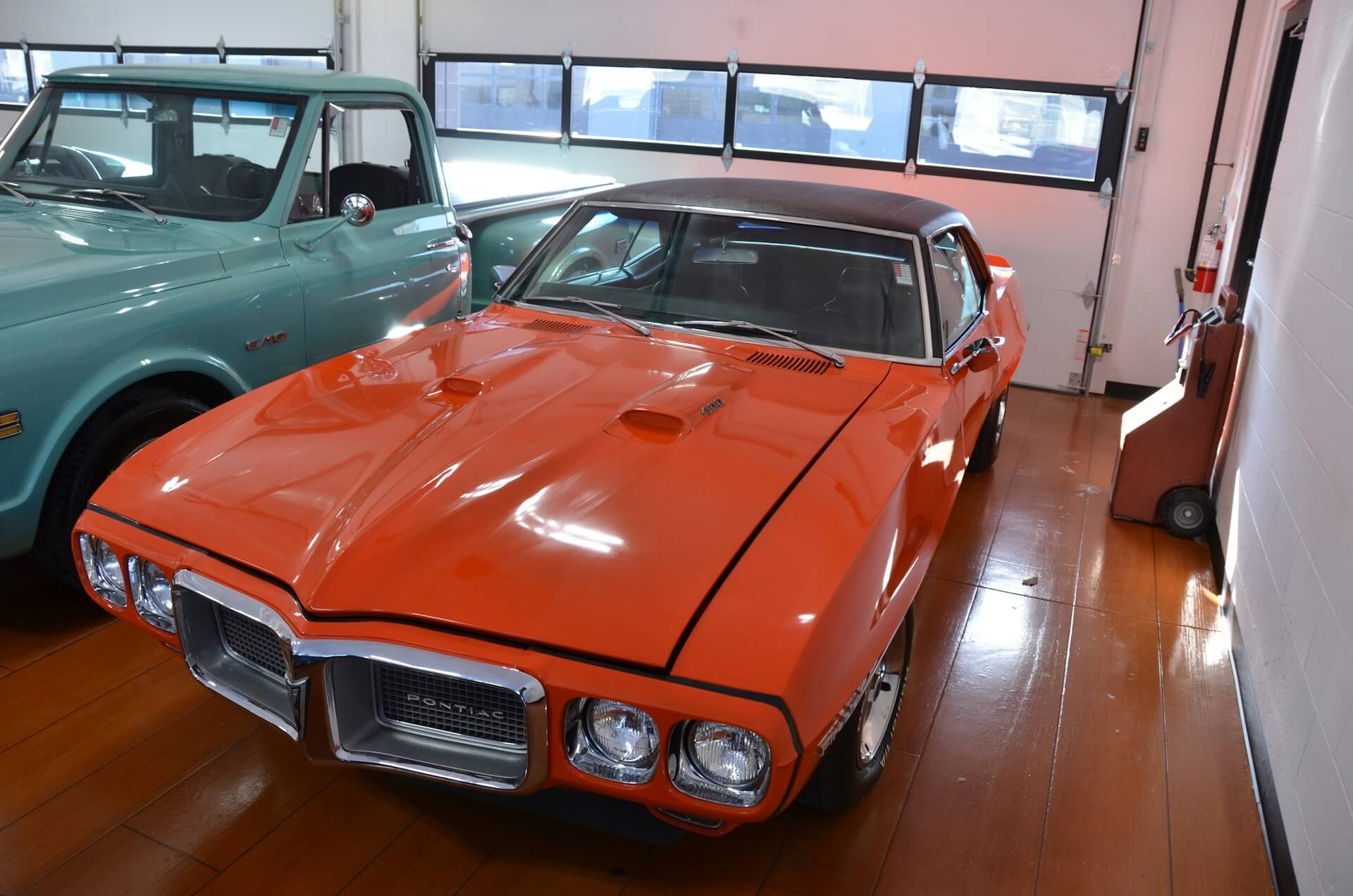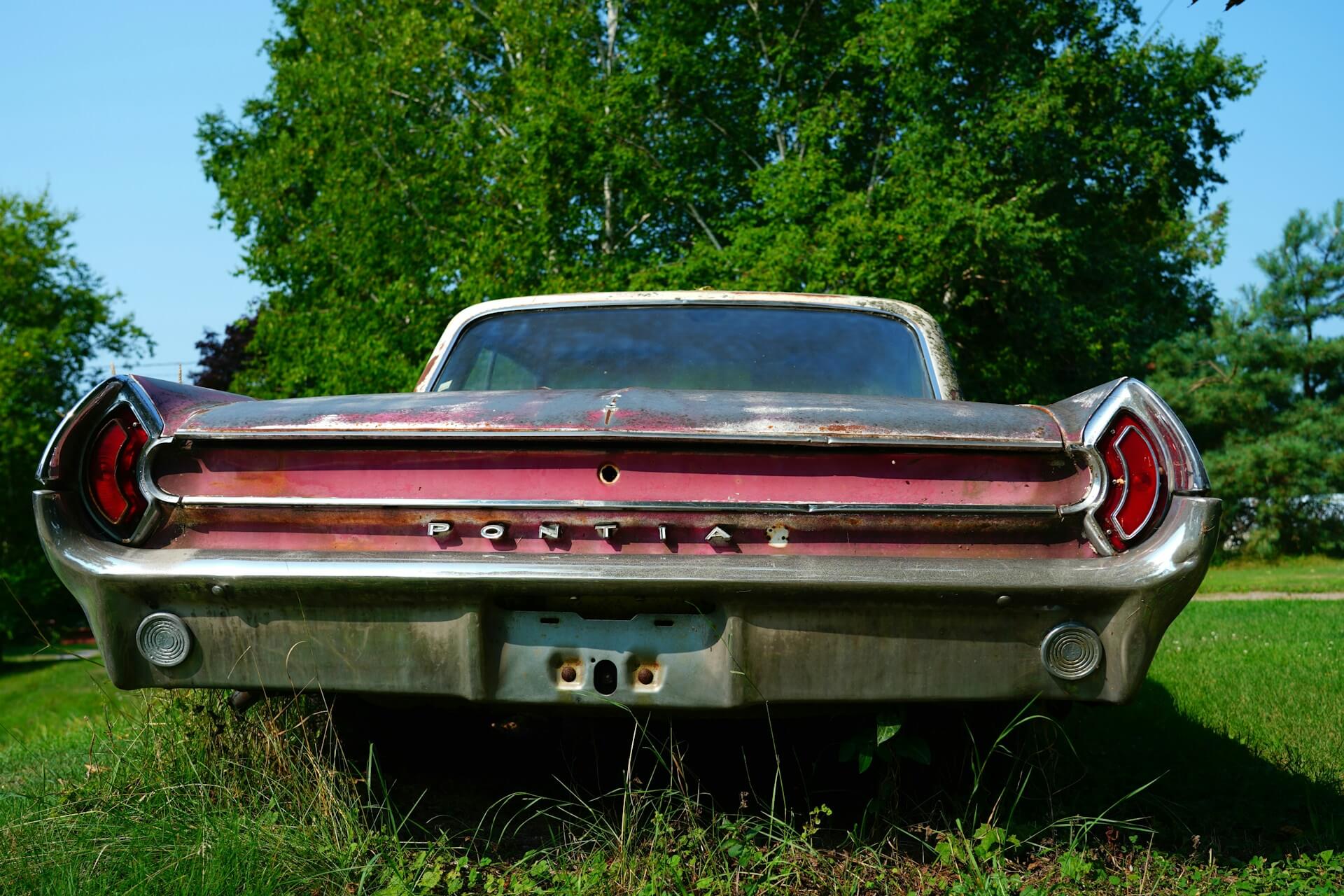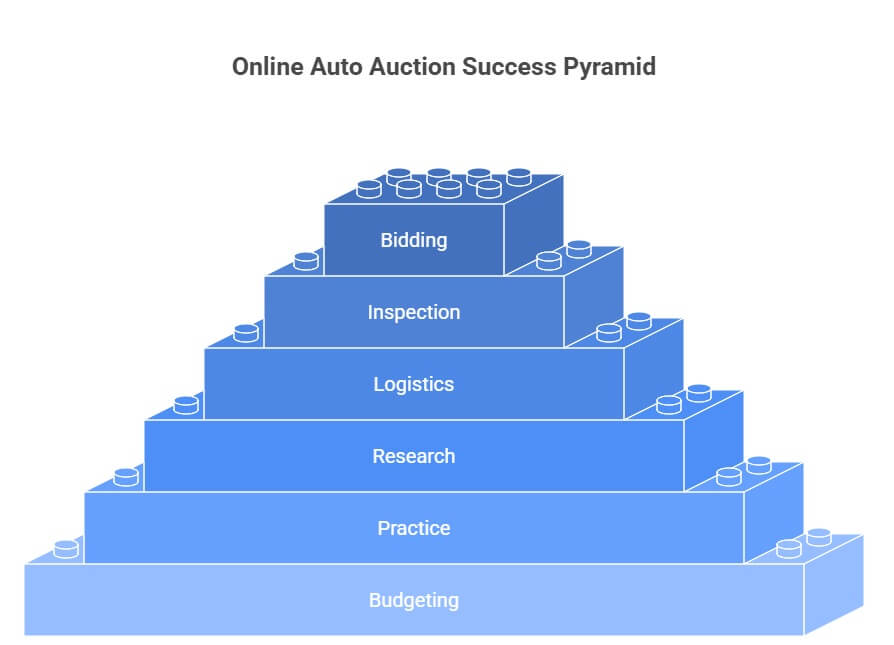Contents
Suppose you’re looking for the best car deals at auction, whether for resale, repair, or personal use. In that case, Copart typically offers lower prices and wider access, especially for public buyers using brokers. Adesa, on the other hand, focuses on licensed dealers and clean-title vehicles, offering a more controlled, professional buying experience. This guide breaks down the key differences, fee structures, inventory types, and essential tips to help you choose the right platform.
What Is ADESA?
ADESA is a long-running auction company. It’s focused on dealer remarketing and fleet/lease returns. It runs physical lanes plus digital sales across North America. ADESA connects franchised stores, finance firms, and rental car companies with qualified buyers. The website supports simulcast, timed, and off-lease events with consistent standards. It’s widely used for clean-title used car stock moving through wholesale channels. ADESA offers flexible sale formats for both physical and online participation.
- Nationwide lanes and an online platform for simulcast and timed sales.
- Strong in seller-only auctions, arbitration, and title services.
- Post-sale support, such as inspections, reconditioning, and car transport coordination.
- Deep pipeline of fleet/lease returns, trades, and used car auction events.
- Tools for floorplan credit, market data, and efficient lane operations.
Some seller lanes report more than half of all bids now placed digitally, reflecting a rapid shift to online participation.
What Is Copart?
Copart operates a global online platform centered on damaged, theft-recovered, and insurance stock. It’s one of the largest online marketplaces for salvage and repossessed units. Public buyers can participate directly or through a broker, and the auction site runs daily with a vast selection. Many shoppers consider it among the best salvage auctions for rebuilders and exporters. Copart puts the power directly in the hands of global buyers with fast online bidding.
- Always-on online car auctions with daily sales and Buy It Now.
- Insurance, donation, seller trades, and finance repos in one extensive inventory.
- Rich photos, condition reports, and “run & drive” flags.
- Pickup logistics, yard support, and optional auto transport and car shipping.
- Modern mobile app for search, watchlists, and one-click bid placement.
The platform processes millions of vehicles annually. It provides one of the largest footprints among digital auction houses.
Key Differences Between ADESA and Copart
ADESA focuses on clean-title, retail-ready units; Copart leans toward salvage and total-loss. ADESA blends physical and digital lanes; Copart is fully online. Copart suits projects; ADESA suits steady wholesale supply and professional car dealers.
Inventory Type and Vehicle Condition

Inventory is where these brands diverge most. ADESA’s lanes feature lease returns, trades, and fleet used car units, typically with clean titles and lighter reconditioning needs. Copart lists damaged and total-loss stock from insurers, plus donation and finance vehicles. You’ll still see specialty items, including vehicles like motorcycles, RVs, and sometimes a classic car. If you specialize in rebuilds, Copart’s volume is compelling.
This comparison also helps shoppers scan sites like these for auctions in the USA and export projects. Among Copart competitors, Copart’s depth in damage categories remains hard to match. Both sites serve car enthusiasts looking for a wide range of vehicles, from economy sedans to luxury cars and rare finds.
Fleet remarketing data shows late-model returns often carry lower mileage and fewer owners. They improve the pool of high-quality used cars for retail and export.
| Factor | ADESA | Copart |
| Typical Titles | Clean; some branded | Salvage, rebuilt, some clean |
| Condition Mix | Retail-ready, light repairable | Heavier damage, repairable vehicles, parts |
| Sources | Car dealerships, rental car companies, fleets | Insurers, finance, sellers, donations |
| Specialty | Seller lanes, occasional classic car units | Powersports, boats, heavy trucks, and cars to salvage |
| Best For | Clean-title used car flow, wholesale | Project builds, exporters, parts seekers |
Buyer Access: Who Can Use ADESA or Copart?
Access rules define where you can bid. ADESA primarily serves licensed dealerships through dealer-only auctions, though select events are open to the public via partners. Copart supports public buyers with member tiers or a broker route. Public auctions and timed sales run often; live auctions mirror the old-school lane feel online. Auctions are open most weekdays, and there are auctions every week. Many of these auctions include specialty, fleet, or even government auctions that attract different types of buyers.
| Factor | ADESA | Copart |
| Primary Audience | Licensed dealers | Public + dealers |
| Public Path | Limited, event-specific | Membership and broker options |
| Verification | Dealer license, resale certs | ID, deposits; broker for restricted lots |
| Global Reach | Strong North America | Strong international buyer base |
| Notes | Traditional lane culture | Broadest public pathway among large players |
Fee Structures
Total cost goes beyond the hammer. ADESA fees vary by lane and region; optional services add cost but reduce risk. Copart publishes buyer fee tiers, an internet bid fee, and strict storage timelines. Always model transport, taxes, and registration before buying a car. Remember to compare the online auction platform rules for each auction company. For used car buyers and exporters, these cost details can determine profitability.
| Fee Type | ADESA | Copart |
| Buyer Fee | Tiered by price & lane | Posted tiers by hammer |
| Internet/Proxy | Simulcast/timed fees may apply | Internet bid fee applies |
| Storage | Grace period varies by site | Short window; per-day charges |
| Title/Doc | State/site dependent | Admin/document fees |
| Optional | Inspections, arbitration, transport | Loading, gate fees, and auto transport add-ons |
Which Platform Is Best for You? (Dealer vs Rebuilder vs Exporter)

Match platform to purpose. Dealers needing retail-ready supply often prefer ADESA’s structured lanes and support stack. Rebuilders and parts buyers favor Copart’s breadth and steady flow of cars. Exporters need scale, ports, and predictable paperwork – Copart’s international logistics help. If you’re selling a car at auction, ADESA’s network gives consistent wholesale demand, while Copart moves damaged stock fast. Whether you’re buying or selling a car, choosing the right platform ensures the best outcome.
| Buyer Type | ADESA Strength | Copart Strength |
| Dealer/Retailer | Clean title, arbitration, data tools | Some retail, heavier damage mix |
| Rebuilder | Light restoration focus | Deep salvage and repairable vehicles |
| Exporter | North American lanes, clean docs | Scale, ports, container logistics |
| Hobbyist/Car Enthusiast | Select a classic car or special events | Budget builds; parts selection |
Real Buyer Experiences and Reviews
First-hand feedback reveals real costs, timing, and service quality. Below are condensed impressions pulled from public chatter about each website experience and auction site flow. Please note: These are not the opinions of our team; they reflect real feedback shared by users on various review platforms and forums.
Adesa Auction Reviews
User reviews highlight consistent processes and clean titles. Buyers praise arbitration and standardized inspections. Access is stricter, but many lanes feel predictable. The site and mobile workflows mirror traditional dealer culture with digital efficiency.
Pros:
- Buyers and sellers describe the staff as friendly and courteous, making interactions smooth and professional across various locations.
- Several sellers were pleased with how quickly their vehicles sold and how promptly they received their checks.
- Even when delays occur, staff have been noted for taking ownership and resolving issues such as reissuing payments.
- Despite not having the largest car selection, users say it’s possible to find excellent vehicles if you know what you’re looking for.
- Pickup flexibility is convenient for transporters and buyers coordinating outside normal business hours.
Cons:
- A few users noted discrepancies between listings and actual vehicle condition, such as cosmetic damage.
- In isolated cases, buyers reported waiting weeks for vehicle titles.
- Some users believe mechanical issues were intentionally concealed, although this doesn’t appear to be widespread.
- A handful of transporters mentioned disorganized parking or long walks during pickup.
- While good deals are possible, buyers mention that selection can be thin, requiring patience or frequent searches.
Copart Auction Reviews
User reviews emphasize selection and speed. Buyers like remote bidding on thousands of lots daily, from clean title to salvage. Exporters appreciate yard logistics, while newcomers warn about strict storage fees. Copart auto updates and mobile alerts help track targets.
Pros:
- Whether selling or scrapping vehicles, many customers report that once Copart collects a car, the funds are transferred quickly.
- Reviewers describe respectful, hands-on support during visits, with employees going beyond expectations to help locate vehicles.
- Specific team members were called out for resolving payment, licensing, and auction access issues, even when other departments failed to help.
- Customers were impressed when expensive belongings left in cars were returned, even before the owners noticed they were missing.
- Those disposing of damaged or totaled vehicles describe the process as straightforward, with pickup and valuation handled professionally.
Cons:
- A few users were surprised by charges for services they no longer used.
- In isolated cases, vehicle condition was incorrectly described on the site, affecting bidding outcomes and perceived vehicle value.
- Cars marked “runs and drives” sometimes arrived with significant engine damage, prompting concerns about listing accuracy.
- While some reps were excellent, others were described as unresponsive or dismissive.
- Some users claimed minor vehicle items disappeared while the car was in Copart’s possession, though such cases appear to be rare.
How to Verify Auction Car History Before You Bid
Before buying a car, verify VIN history, title status, and state rules. Pull NMVTIS and insurance records, and compare photos across prior listings. For fleet units and unsold new cars, check for manufacturer buybacks, demos, or recalls. Save the lot page and images for your records and confirm the seller type on each site. This step is vital whether you’re dealing with a used vehicle or a newer unit.
- Decode the VIN and options using a reliable VIN decoder.
- Pull NMVTIS and insurance loss data; confirm title brands.
- Compare current photos with earlier vehicle auction appearances.
- Budget for transport, taxes, and post-purchase maintenance.
Accident-history units typically sell at a discount, but hidden repairs can erase savings if diagnostics are skipped.
Clean vs Salvage Title Cars: What’s the Real Difference?

Title status changes insurance, registration, and resale paths. Clean-title car purchases cost more up front but reduce unknowns. Salvage car projects require inspections and may have financing limits. Rebuilt titles exist after repairs and verification. Understand your state’s process before placing a bid on an online vehicle auction or lane sale.
| Aspect | Clean Title | Salvage/Rebuilt Title |
| Typical Cost | Higher entry price | Lower upfront, more risk |
| Risk | Fewer unknowns | More repair/paperwork risk |
| Insurance/Finance | Easier, mainstream | Limited or specialty insurers |
| Resale | Stronger values | Discounted vs clean |
| Best Use | Retail, quick turn | Projects, export, parts |
How to Legally Rebuild a Salvage Title
Every U.S. state has its own laws governing how a salvage vehicle can be repaired and retitled for legal road use. These “salvage title rebuild” laws define the inspections, paperwork, and disclosures required before a rebuilt title is issued. For example, New York requires a formal Salvage Vehicle Examination by the DMV to check for stolen parts and verify repairs. In California, buyers must submit brake, lamp, and smog certification along with detailed repair records. Because Copart and ADESA list vehicles from all over the U.S., it’s essential to verify what your state’s DMV requires before bidding.
To check any title brand across states, use the National Motor Vehicle Title Information System (NMVTIS), which lets you confirm if a car has been branded as salvage, junk, or rebuilt, and in which state.
Tips for First-Time Buyers at Online Auto Auctions

Set a firm budget and include everything: fees, taxes, storage, and transport. Practice on low-stakes lanes to learn countdowns and proxy logic. Use saved searches on each website. Study the fee tables and know payment deadlines; every auction enforces them. If shipping across the USA, book logistics early to avoid storage. For first-timers, researching the best car auction sites can help you find the best deals.
- Walk the yard or request extra photos when possible.
- Factor in car shipping and auto transport into the max price.
- Inspect items carefully; assume hidden costs.
- Use a VIN decoder to verify options and recalls.
- Time your bid near close, but avoid last-second mistakes.
According to SCA, major platforms schedule multiple auctions every weekday, giving frequent chances without rushing decisions.
Summary
ADESA and Copart serve different roles within the auto auction industry. ADESA’s structure suits dealers seeking clean titles and smooth lanes. Copart’s scale suits salvage projects, exporters, and parts buyers. Define title tolerance, transport plan, and budget. Then choose the auction site whose rules, fees, and extensive inventory align with your goals. Both have high-end auctions with luxury cars and entry-level options. With planning, auctions offer value and speed for buyers and sellers, including cars and powersports. This guide was designed to help you find the best approach to online auto purchases.
FAQ
Which Auction Platform Is Better for Motorcycles, RVs, or Specialty Vehicles?
Copart is ideal for powersports and RVs due to volume and variety, while ADESA occasionally features specialty and classic car auctions. Compare photos, fees, and timing to pick the best online car auction for niche assets.
Where Is It More Likely to Find Insurance Company Total-Loss Vehicles?
Copart concentrates on insurance auto auctions, so you’ll see more total-loss stock there. ADESA carries some branded titles but remains stronger in clean-title dealer auctions and fleet lanes across the USA.
How Do Public Buyers Compete with Licensed Dealers in Online Auctions?
Register early, set alerts on online car auction sites, and practice proxy bidding. Target off-peak public auctions, review fee tables, and stick to your ceiling. Patience beats impulse at a fast car auction.
What Happens If I Win an Auction But Don’t Complete the Payment?
Penalties vary by website and site:
– Relist fees and partial or full deposit loss.
– Account suspension with the auction company.
– Storage charges until the car leaves the yard.
Are There Limits on How Many Cars a Public Buyer Can Purchase?
Yes. New public accounts may face purchase caps or higher deposits, especially at auction houses running the largest auto auction events. Limits typically relax with clean payments and history.






